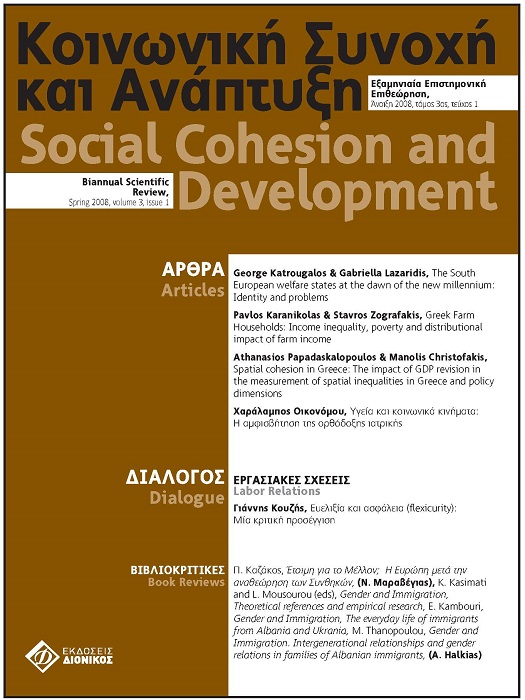Flexibility and security (flexicurity): a critical approach

Abstract
The combination of flexibility and security entails
an inherent contradiction between these
two competing poles, to such a degree that –as
evidenced by the practices related to the recognition
of the rights of those working under
flexible terms– the so-called balance between
them remains a mere declaration. Furthermore,
the liberalization of dismissals counterbalanced
by ensured reintegration of the unemployed,
based on the Danish example, cannot be universally
applied due to its specificities. Lastly,
questions arise relating to the nature of security
following reintegration and the possibility
of passing the responsibility from firms to society,
thereby widening social inequalities and
deregulating industrial relations and labor law
under re-regulation.
Article Details
- How to Cite
-
Κουζής Γ. (2016). Flexibility and security (flexicurity): a critical approach. Social Cohesion and Development, 3(1), 67–77. https://doi.org/10.12681/scad.8902
- Issue
- Vol. 3 No. 1 (2008)
- Section
- Dialogue

This work is licensed under a Creative Commons Attribution-NonCommercial-ShareAlike 4.0 International License.
Authors who publish with this journal agree to the following terms:
- Authors retain copyright and grant the journal right of first publication with the work simultaneously licensed under a Creative Commons Attribution Non-Commercial License that allows others to share the work with an acknowledgement of the work's authorship and initial publication in this journal.
- Authors are able to enter into separate, additional contractual arrangements for the non-exclusive distribution of the journal's published version of the work (e.g. post it to an institutional repository or publish it in a book), with an acknowledgement of its initial publication in this journal.
- Authors are permitted and encouraged to post their work online (preferably in institutional repositories or on their website) prior to and during the submission process, as it can lead to productive exchanges, as well as earlier and greater citation of published work (See The Effect of Open Access).


